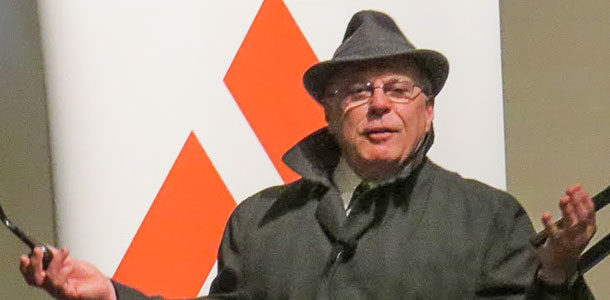More than 250 farmers, nutritionists and industry professionals recently descended upon Lambeau Field in Green Bay, Wisconsin, ready to accept the challenge, “Are you in it to win it?” and discuss innovations and investments every dairy should consider for a fruitful future.
While volatile milk prices and increased feed costs have caused many dairy producers to reexamine their playbooks and develop a new defense strategy, the 11th annual Alltech Wisconsin Dairy School, held Thursday, Nov. 13, urged producers to consider working on their offense instead this year.
A preconference breakfast kicked off the event with Jake Peissig, JTP Farms, and Ray Diederich, Diederich Farms, each giving a virtual tour of their farms and sharing their experiences transitioning from labor to robotics in their presentation, “Robotic milkers: Are they the future?”
The main reasons JTP Farms changed to a robotic system were labor and herd health issues. Since the farm added the technology, the herd has had virtually no feet or leg issues, cell count has improved and cull rate decreased to 6 percent the first year. The two-and-a-half full-time employees were also able to spend more time focusing on young stock and lactating cows and additional time in the field during planting and harvesting.
“You need to do your research. Don’t overthink it. The more cows you have, the harder it gets,” Peissig said. “What are your goals? Tap all your resources and make sure you are dairying for the right reason.”
Jack Rodenburg, DairyLogix Canada, opened the main conference asking, “Do robotics have a place on your dairy?” Rodenburg foresees robotics greatly impacting the future of dairy production in the U.S., as the technology can reduce labor and management time, improve productivity and lower costs, revitalize the family farm and offer a sustainable alternative to “bigger is always better.”
“In the future, we will be looking to robotics to reduce labor, improve productivity and narrow the gap between mega farms and 300-cow family-run dairies,” Rodenburg said.
Robotics were not the only investment discussed at the Dairy School. Brad Rortvedt, territory sales manager for Alltech, brought up several key assets within dairy production during his presentation, “Game changers: Where to see the greatest return within your dairy.” Rortvedt encouraged producers to invest in technologies that drive peak milk performance, provide more consistent and higher quality forages, and strengthen pre/post-fresh nutrition programs to increase milk production.
“Peak milk is the most efficient investment and will give you the highest ROI,” Rortvedt said. “By using all the tools available, we can measure success beyond the bulk tank milk.”
Nick Adams, Alltech mycotoxin management team, spoke of the importance of testing for mycotoxins in feed. “Mycotoxin risk changes each year and throughout the feeding season,” Adams said. “Producers need to keep in mind the risk from mycotoxins is a moving target and what you feed today is not necessarily what you will feed tomorrow.”
The Dairy School’s keynote speaker, former Green Bay Packer running back Ahman Green, concluded the event with his presentation, “Are you in it to win it like the Packers?” Green, an all-time leading rusher for the Green Bay Packers and a member of the Green Bay Packer Hall of Fame, discussed the importance of having a positive attitude, a solid integrity and a strong family support network. PD
—From Alltech news release
PHOTO
Tom Lorenzen, Alltech on-farm specialist, encouraged dairy producers to take a Sherlock Holmes investigative approach to herd health and environment during his presentation at Alltech’s 11th Annual Dairy School at Lambeau Field, Green Bay, Wisconsin. Photo provided by Alltech.




